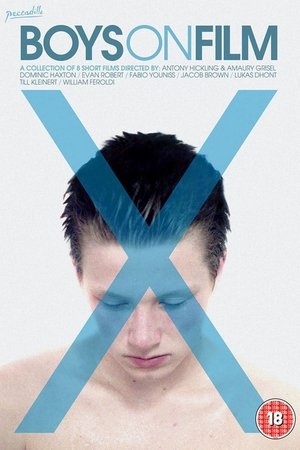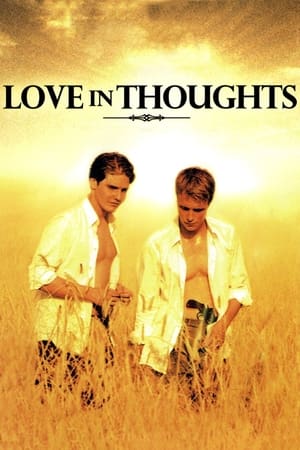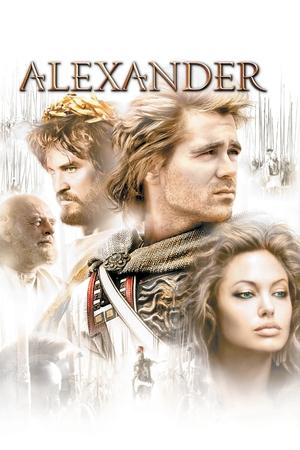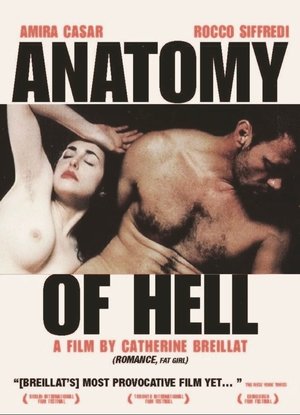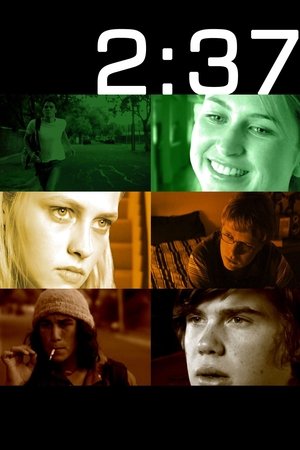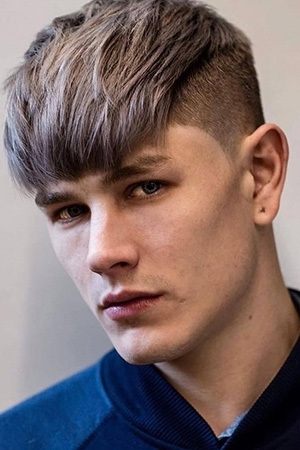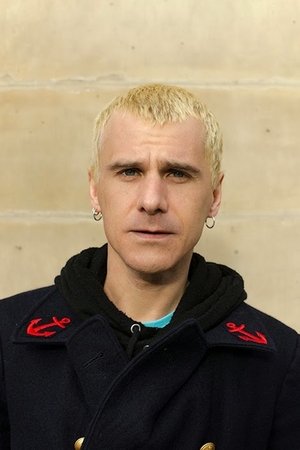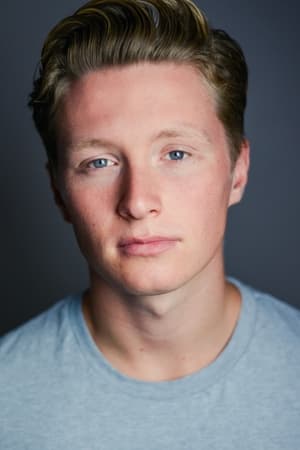-
NMulholland
The tenth installment of one of cinema’s most celebrated short film series Boys on Film X is an explosive cinematic exploration of LGBT themes and lifestyles with a selection of shorts that have been showcased at large scale global film festivals including the Iris Prize Film Festival and BFI London Lesbian & Gay Film Festival. Boys on Film X features narratives that seek to challenge social and moral boundaries ranging from the stories of suicidal teens to lonely older men. First up on the menu is Blinders a ten minute short by Jacob Brown that tells the story of a young couple (Nathaniel Brown and Byrdie Bell) who meet an androgynous and polyamorous boy (Luke Worrall) one night at a club. It soon becomes clear that both of them are attracted to this newcomer, but the young man takes things a step further and sleeps with the white haired boy. And although his girlfriend isn’t privy to this information, she certainly suspects. This narrative brings to its forefront questions regarding the meanings of relationships and boundaries of desire and attraction. Finishing on an open ending, it’s up for the audience to consider what became of the relationship between the three youths. A film with crisp cinematography that plays a lot with ideas of light and exposure – perhaps an extended metaphor for the film’s exposure of romantic connections, Blinders is a recommend to those of you after an aesthetically pleasing short about the effects of attraction and don’t mind an ending that’s not concrete! Blinders is followed by the British thirteen minute short A Stable for Disabled Horses directed by Fabio Youniss shot in monochrome that tells of the undecided relationship between two friends. Set entirely in Benny’s (Daniel Swan) living room in Bethnal Green, as he throws a two man party for his best friend Kanoute (Daniel Simonsen) who is moving back to Norway. As if the atmosphere wasn’t already tinged with an air of awkwardness, Benny’s determination to confess his more than platonic feelings towards Kanoute makes the evening tense with anticipation. Like Blinders, this film too finishes on a somewhat open note, we can only assume that Kanoute acknowledges the feelings of Benny but it is unclear what happens between them next. An endearing short that explores homoromanticism on an urban level, romanticised by its black and white finish, A Stable for Disabled Horses is realistic in its content with both actors fulfilling their roles to an admirable standard. The third film of the Boys on Film X collection is an artsy thirty minute piece, the second in the Gay Boy trilogy by Anthony Hickling and Amaury Grisel entitled Little Gay Boy chrisT is Dead. The narrative of this film is of Jean Christophe (Gaëtan Vettier) who lives with his prostitute mother (the subject of the trilogy’s first film) in Paris and has aspirations of one day becoming an international model. Signing up to what appears to be a backstreet agency JC is sent off on a number of shoots and experiences that impact him greatly both physically and psychologically as his dreams and innocence are taken from him. With striking scenes of BDSM and domination JC is subjected to a variety of torments that he goes along with, with hopes of youthful naivety in regards to the bettering of himself. The film is filled throughout with scenes of a male dancer, initially painted white and dancing dynamically and confidently who becomes smeared with colourings of red and flops and rolls around the floor of the white room in which he is depicted. Such an image can be considered representative of JC’s psyche as his innocence is slowly but surely obliterated, reflected by the dancer’s helplessness as he struggles, dirtied upon the floor. With focused and sharp cinematography Little Gay Boy ChrisT is Dead leaves nothing to the imagination by way or imagery, but certainly causes one to question social relations and circumstance. Following on from Little Gay Boy chrisT is Dead is the much more sedated and platonic Headlong, a seventeen minute short by Lukas Dhont that tells the story of a young ballet dancer (Jelle Florizoone) on the eve of a dance competition. Holed away in his hotel room, eaten by loneliness, the dancer’s isolation is interrupted by a stranger (Thomas Coumans) who seeks temporary sanctuary in his room to evade the police. The two become amicable, but upon the former’s leave the dancer is hesitant to return to his well of loneliness and follows him, much to the man’s displeasure. The two end up spending a fun, platonic night together before returning to the hotel where the stranger leaves the young dancer while he sleeps. A sweet film that centres on themes of solitude and interaction, tinged with attraction, the performance of both actors bringing to life a simple relationship between men in a way that can be the subject of multiple interpretations. A little anti-climactic, Headlong is a continual narrative with no conclusive structure, and yet this is fulfilling as it allows the audience to focus on what is truly important in the film – the relationship between its characters. Joining Headlong as the shorts that make the film’s halfway point, Boys Village a twenty-two minute piece by Till Kleinert has a much more horror story inspired theme. Set in a holiday camp for the sons of coalminers that appears long since abandoned, littered with debris and covered in graffiti Boys Village isn’t as empty as it looks. Kevin (Benjamin Thorne) has been roaming the site for decades, an eleven year old lonely ghost. With affections for Alex (Andrew McQueen) a member of a group of youths who use the site for their graffiti and as a place in which to get high. Kevin, following some slightly horror-esque scene sequences manages, to get Alex to unknowingly release him from his earthly bounds, but at a great consequence to other boy. A film that cleverly makes you fearful of a young boy and what is beyond a blackened doorway, shot professionally with believable actors who, through minimal dialogue convey their character’s well. The lack of dialogue has no negative impact upon the film as a whole, as an atmospheric (often tense) soundtrack more than provides for the feel of the plot. Teens like Phil is the twenty minute short from Dominic Haxton & David Rosler that tells a very relatable and American story of gay acceptance, not from other people, but rather of yourself. Phil (Adam Donovan) is a high school student in suburbia America and suffers for his sexuality, not only does he struggle to accept his gay inclinations he also has to suffer the wrath of his fellow students, and perhaps worst of all his former friend and love interest, Adam (Jake Robbins). Jake too struggles to accept himself, coming from a macho-orientated family and lashes out at Phil verbally and physically in such a way that it drives the latter to the brink. The film’s focus on Phil’s suffering is very real and painful for those who can relate, filled with strong themes of gay teen suicide Teens like Phil brings to the forefront the image of adolescent distress in a way that prompts the audience to question the support system (or apparent lack of it) surrounding queer youth as well as the attitude of their peers. Both things that need to change through awareness and education. As such, the production of the film is professional and manages to pack a large cast, compelling plot and real character development into its twenty minutes. The penultimate film in the collection is William Feroldi’s fourteen minute Inflatable Swamp is a heart-warming contemporary tale of how even if lost in life and its physical pleasures, unexpected situations can reconcile the physical pleasures with affections of the heart. Matt (Francis Beraud) is a gay bachelor who engages in plentiful sexual activities with plenty of men, noting their size and/or a particular observation/activity about them – ‘6” Average Sucker’ – on a notecard attached to a piece of string tied to a blue balloon, of which he has a collection floating along the ceiling of his bathroom. Matt’s detachment to his bed partners change however when he meets Luke (Paul Huntley Thomas) who arouses feelings of curiosity and tenderness in Matt. This film is filled with beautiful cinematography, in particular Matt’s bathroom of blue balloons and although it features only one line of dialogue – important because it cements Matt’s interest in Luke, the characters are conveyed strongly and charismatically. Inflatable Swamp is an interesting study in gay male relationships and can be enjoyed by both those who seek more artsy cinema and those who enjoy cinema with engaging characters and a simple plot line. Reaching the end of our crazy review-a-thon, Yeah Kowalski! is the collection’s light-hearted closing feature. A quick ten minute short by director Evan Robert, the film follows the endearing Gabe Kowalski (Cameron Wofford) a young gay American teen who is insecure about his lack of armpit hair. Feeling emasculated by his lack of productive puberty Gabe doubts his chances of winning over his crush on class mate Shane (Conor Donnelly), but sure enough as the result of some embarrassing events at Penny Forster’s (Annamarie Kasper) birthday party, Gabe succeeds in ensuring himself a date and even discovers a single hair beneath his arm! A light-hearted a colourful short, Yeah Kowalski! is cartoon like thanks to its saturated cinematography and youthful (albeit professional) cast. Filled with childish innocence, happiness and vitality, this short brought an uplifting end to a collection of films that included some pretty dark material. Perhaps it could even be considered that this film’s placing on the list is to remind us that despite queer trials and tribulations, it does get better. An enjoyable assortment of films, if not a little disjointed at times, Boys on Film X is accessible and appealing to a diverse audience and is a must watch and indeed have, to complete your Boys on Film collection.
please Login to add review
